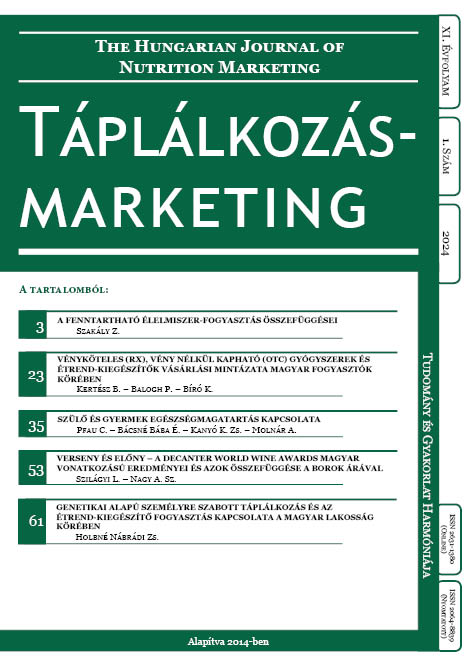Interrelations of Sustainable Food Consumption
Author
View
Keywords
License
Copyright (c) 2024 Prof. Dr. Zoltán Szakály

This work is licensed under a Creative Commons Attribution-NoDerivatives 4.0 International License.
How To Cite
Abstract
The past seventy years have been perhaps the fastest development phase in human history. The concept of sustainable development is the sense of responsibility towards future generations, the so-called emphasizes intergenerational solidarity by recognizing the right of future generations to meet their needs. The biggest challenge facing humanity is finding solutions to reduce the damage it causes. The key to this is changing consumption habits. We believe that a food consumption structure that has a low environmental impact, but at the same time an insufficient nutrient density, cannot be considered sustainable, as this leads to malnutrition and deficiency diseases. A sustainable food system (SFS) is a food system that ensures food security and healthy nutrition for all, in a way that does not jeopardize the economic, social and environmental foundations for future generations. Based on what has been described so far, it is clear that the environment and health are two key dimensions of a sustainable diet or sustainable food consumption. The article presents the implementation possibilities of sustainable food consumption through examples.
JEL Codes: E2, Q5


 https://doi.org/10.20494/TM/11/1/1
https://doi.org/10.20494/TM/11/1/1





